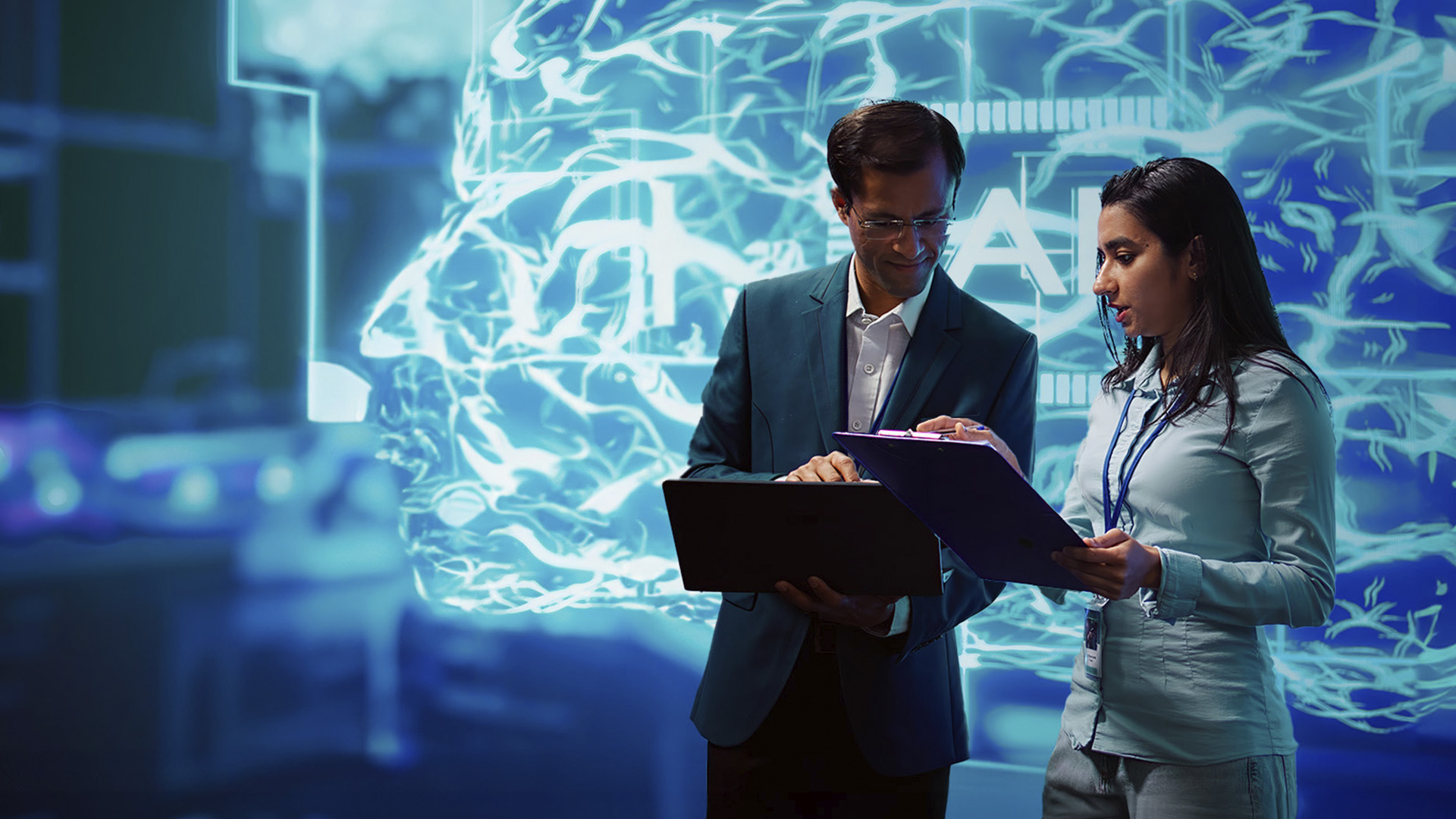A technical look at the Master in Artificial Intelligence and Data Science
Artificial Intelligence (AI) is much more than a buzzword: it is a rapidly evolving technical field that is driving innovations in sectors as varied as health, banking, energy and transport. To train in this field and find out what master's degree in AI choose in 2025, a generalist view is not enough: you need a solid background in applied mathematics, programming, data modelling and modern AI architectures.
This programme, directed by Unai Obietastands out as one of the most comprehensive and technically rigorous options.
A master's degree in AI with a real scientific and technical basis
From the first module, the programme addresses the essential fundamentals that enable understanding and developing AI solutions. Some technical pillars:
- Python programming (data structures, functions, classes, error handling, libraries: NumPy, Pandas, Matplotlib).
- Mathematical foundations: linear algebra, calculus, statistics applied to predictive models.
- Data modelling with SQL and NoSQL (e.g. MongoDB).
- ETL/ELT process design and automation with tools such as Apache Airflow and dbt.
Machine learning and neural networks
In terms of machine learning, the master's degree covers everything from classical algorithms to deep learning:
- Regression, classification, clustering, dimensionality reduction (PCA, t-SNE).
- Optimisation techniques: gradient descent, regularisation, cross-validation.
- Neural networks with TensorFlow and PyTorch.
- Introduction to generative artificial intelligence (GANs, diffusion models, transformers, LLMs such as GPT).
Data visualisation and storytelling
Data must not only be analysed, but also communicated. That is why we work with:
- Power BI and Tableau to create interactive dashboards.
- Business-oriented data storytelling.
- Interpretability of models with SHAP and LIME.
Cloud infrastructure and deployment
You will learn to work with real production environments:
- Containerisation with Docker and orchestration with Kubernetes.
- Cloud platforms: Azure and AWS.
- MLflow to manage experiments and models.
- Distributed training on Spark clusters using Databricks.
Capstone project and real cases
The master's degree in AI culminates in a final project in which all that has been learnt is applied. Some examples:
- Churn prediction for a telco.
- Classification of medical images.
- Personalised recommendation system.
- Use of generative AI for creative content.
Each project is evaluated by technical and business experts in a collaborative and agile (Scrum) environment.
Databricks Certified Data Engineer Associate Certification
One of the great advantages of the AI Master's degree is that it includes the official certification Databricks Certified Data Engineer Associateone of the most valued credentials in the big data and data engineering ecosystem today. This certification accredits your competencies to design, build, optimise and manage data pipelines on the Databricks platform, using Apache Spark.
Throughout the AI master's course, students work directly with Databricks Notebooks, data transformation and loading tasks, performance optimisation with Delta Lake, and ingestion strategies in distributed environments. Thanks to this practical training, students not only acquire the technical knowledge, but leave the master's degree prepared to pass the official exam and apply this knowledge in real production environments.
Numerous leading global companies use Databricks to leverage their capabilities in data analytics, artificial intelligence and machine learning. Below are a few notable examples.
- PwCDatabricks: Global professional services firm that uses Databricks to enhance its data analytics solutions.
- AvanadeDatabricks: IT consulting firm that uses Databricks in its digital transformation and analytics services.
- Thermo Fisher ScientificBiotech company that leverages Databricks to process and analyse large volumes of scientific data.
- KPMGDatabricks: Professional services firm that integrates Databricks into its financial analysis and audit solutions.
- AtlassianDatabricks: Software development company using Databricks to enhance its internal data analysis capabilities.
- PepsiCoDatabricks: Multinational food and beverage company using Databricks to optimise its supply chain and market analysis.
- DeloitteDatabricks: Consulting firm that integrates Databricks into its analysis and digital transformation services.
- Cognizant Technology SolutionsDatabricks: IT services company that uses Databricks to provide advanced analytics solutions to its customers.
- SantanderDatabricks: Spanish bank using Databricks to improve its data analysis and financial services capabilities.
- HSBCDatabricks: Global bank using Databricks to power its risk analytics and compliance operations.
These organisations represent a sample of the broad spectrum of industries that rely on Databricks to drive their data-driven strategies.

